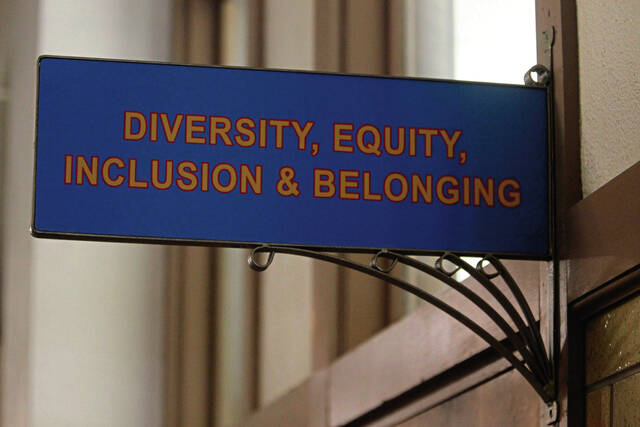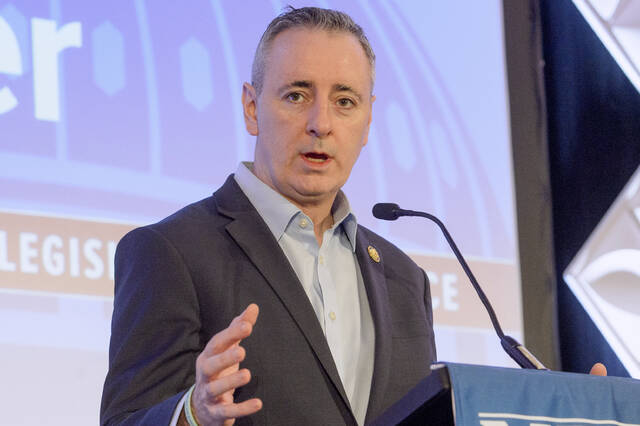I am not a DEI hire.
But I could be.
I am a woman, which is probably the easiest way into the club. Women, after all, make up 47% of the workforce, according to the U.S. Bureau of Labor Statistics.
I am over 50, which means I’m not quite in that “are you thinking of retiring?” category but I can see it from where I’m standing. The average age of a member of the U.S. House of Representatives is about 58, so I would practically be in “young whippersnapper” territory if I ran for office.
I am disabled in ways that do not affect my ability to do my job. I am a single parent, which sometimes does.
None of these, to my knowledge, are why I was hired. But all of them are reasons that DEI programs exist.
Diversity, equity and inclusion are yoked together as efforts to make sure that areas like workforce and education are strengthened by the input of a broad array of voices — and to make sure that the people with those voices are not closed out of opportunities.
DEI can be dismissed as minority hiring. Its detractors will say it puts less qualified people at the front of the line. The point is to make sure everyone gets a shot at lining up in the first place.
And why is that a bad thing?
President Donald Trump has been singling out DEI efforts. He did it most prominently in the aftermath of the crash of an American Airlines commercial plane with a military helicopter last week.
“The FAA’s website states they include hearing, vision, missing extremities, partial paralysis, complete paralysis, epilepsy, severe intellectual disability, psychiatric disability and dwarfism,” Trump said in briefing hours after 67 people were killed. “Brilliant people have to be in those positions.”
Let’s be crystal clear. Brilliant people can have hearing or vision problems. Brilliant people can have missing extremities or paralysis. They can have epilepsy or a psychiatric diagnosis. They can have dwarfism. Any number of people could have any of those conditions and fly planes or direct air traffic.
Trump has taken aim at DEI efforts in government programs since taking office, claiming it is a return to “merit” hiring.
That is an insulting attack on those who have done these jobs. Do we as a country honestly believe that a woman can’t fly a plane? That a Jew can’t direct air traffic? That a Mexican American can’t work for the Justice Department? That a gay man can’t be an epidemiologist?
Most to the point, do we believe that a military veteran who sustained a career ending injury in Kandahar should be shut out of other opportunities to serve his country in the government, using skills developed on the taxpayers’ dime?
Our government is fine with DEI when it comes to elected offices. Over 30% of the U.S. Senate is older than 70. Multiple members of Congress have disabilities, including Sen. Mitch McConnell, a polio survivor who suffered another fall this week. Health and Human Services secretary nominee Robert F. Kennedy Jr. has multiple neurological conditions.
It is downright tragic that we are content to let those with the levers of power paint others as DEI beneficiaries like that is a bad thing. DEI is not a handout. It’s an idea focused on opening a door rather than slamming it in someone’s face.
And while some of us could be DEI hires by accident of birth, none of us is exempt from becoming a DEI hire due to circumstance.








